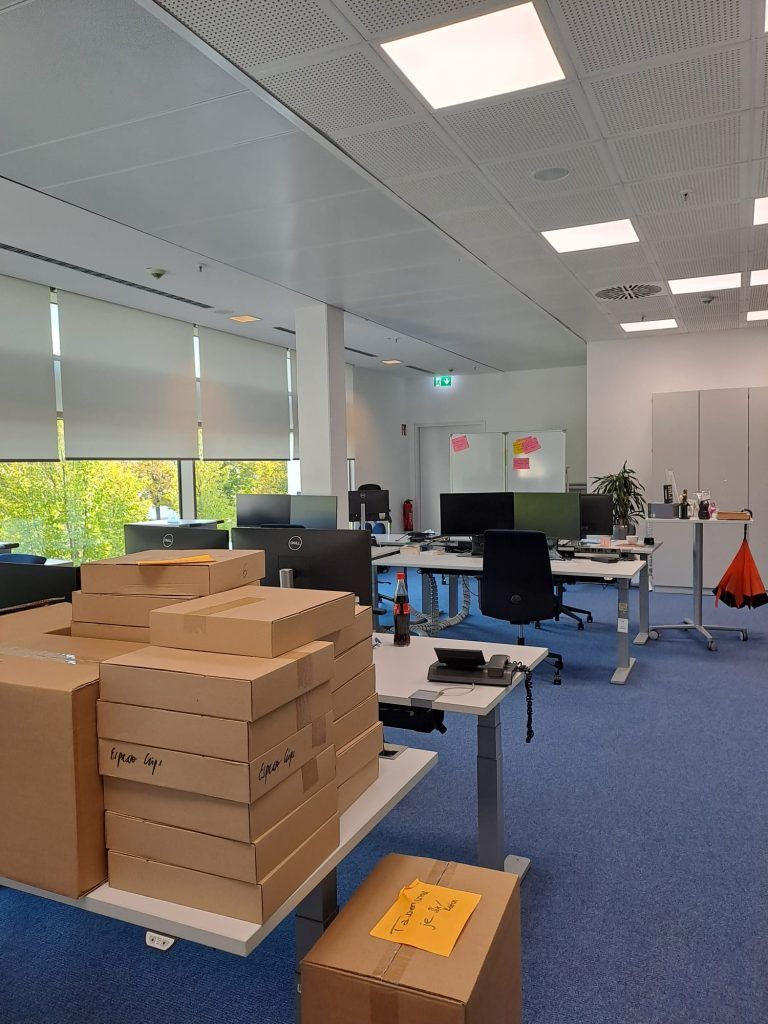Students of the fifth semester of the Industrial Engineering and Management program – like me – can register for the elective subject “International Technical Sales Project”. In the first part of this annual event, about 20 students of the French partner university of the DHBW “Ecole La Mache” from Lyon visit the campus Bad Mergentheim for five days to work on a sales project together with the german participants. In the second part of the program, which also lasts five days, the German students then go to the university in France.
This year’s project involved equipping a fictitious hotel chain in Lyon with all kinds of equipment for washing bed linen. At the beginning of the project week, groups of five participants each initially dealt with determining the customer’s laundry volume and recorded requirements in an introductory discussion with the customer. In the following steps, we were given the task of setting up a complete laundry room for the customer based on his requirements, so that all work steps associated with bed linen could be carried out by the hotel chain’s employees. This included determining the number of workers required, the number of washing machines and their size, as well as the required drying and ironing equipment. Customer requirements such as quality and environmental influences played an important role in the selection of equipment.
Within our working groups we were able to assign individual tasks ourselves: For example, I took on the task of modelling the laundry room in a CAD program and then loading it into MS HoloLens – an augmented reality spectacle for displaying holograms in real three-dimensional space. This allowed the customer to move around in his future laundry room and bring in spatial changes so that we could implement them. Other tasks were, for example, the calculation of performance parameters in order to select, the devices corresponding to the customer’s wishes, or the drafting of a sales contract.
Besides the project tasks themselves, there were many opportunities for German and French students to make friends and get to know each other better, for example during a trip to Würzburg or several dinners together.
In summary, I was able to gather several positive experiences during the project week. Above all, I was able to improve my language skills considerably. The negotiation training, customer meetings and international cooperation in English helped me a lot. I am looking forward to the second part of the program, where I will visit the University in Lyon for five days in April 2020.











